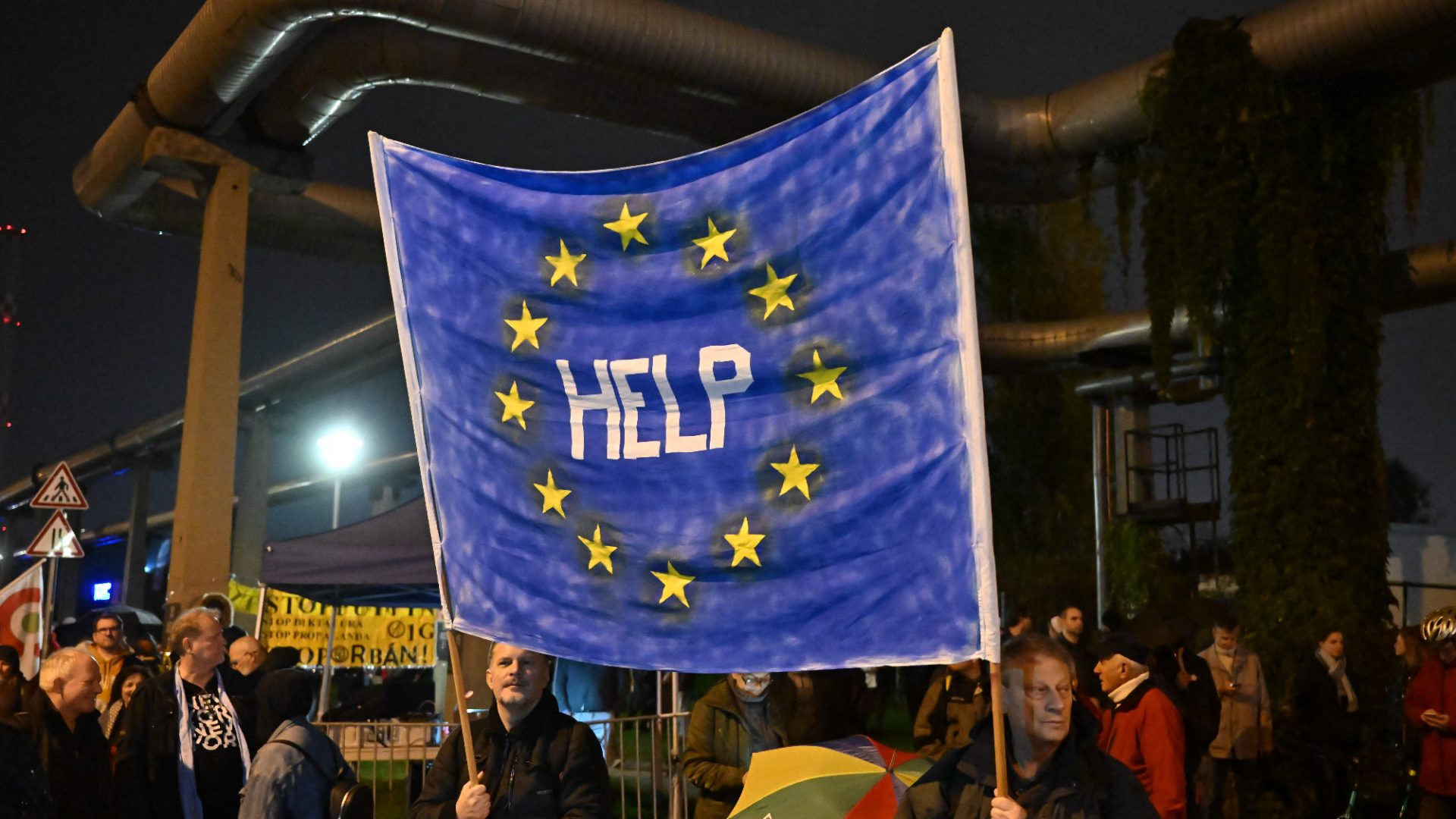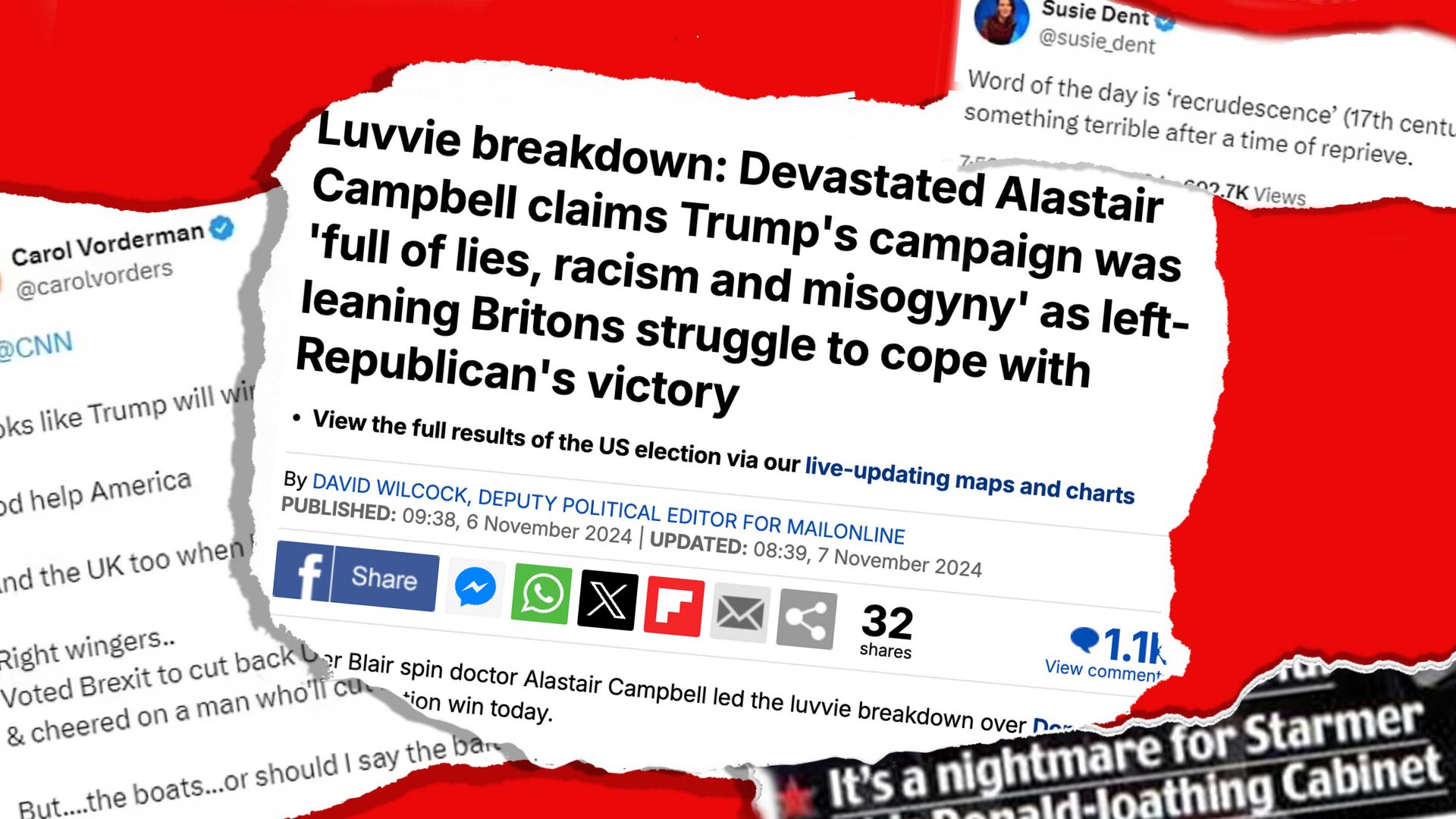On Thursday November 7, as the dust settled after Donald Trump’s election, European leaders met in Budapest. Had they wanted to offer a tragic caricature of themselves, they couldn’t have done it any other way.
At a time when Europe is talking about asserting its “strategic autonomy” in the face of an American president who is openly hostile to the European Union and the Atlantic Alliance, they were all gathered in the country of Hungarian prime minister: Viktor Orbán, the only EU and Nato leader to be the declared friend of the declared enemies of the EU and Nato, Trump and Vladimir Putin.
What on earth were they doing round at Viktor’s, the man currently popping champagne corks, the Trojan horse of national-populism in Europe, the Trumpist inspirer of “illiberal democracy” who conducts his business between Moscow and Mar-a-Lago?
Of course it was just a bad coincidence of the calendar – it is Hungary’s turn to hold the rotating presidency of the European Union for a six-month period. The Europeans had scheduled two separate meetings in two days. A European Council bringing together the 27 EU leaders, and a summit of the European Political Community, an organisation designed to strengthen links between the countries of the continent, from the United Kingdom to Turkey.
But the show summed up the irony of Europe’s situation. At a time when Europeans are being challenged as never before in their history, encircled to the east by the war in Ukraine, to the south by the war in the Middle East, to the north by the melting ice pack and to the west by an ally that is no longer an ally, the EU27 have proved their tragic immaturity. Divided by nature and infected by the national-populist wave, they are incapable of reaching agreement on major issues such as preparing for the election of Trump, the latest major event that is reshuffling the world’s cards.
For ages, the elephant has been in the room and the ostriches have been unable to see it because their heads were in the sand. Trump’s election was totally predictable.
For Europeans, it means a complete strategic upheaval. And they have not prepared for it, completely out of step with the scale of what is at stake. On November 6, 2024, they suddenly poked their heads out and cried: “Oh, but we’re all alone!” All around them, the desert. And an elephant, Trump.
Democracies have declined across the planet. The west has lost its hegemony and its monopolies to the global south. The Brics nations – Brazil, Russia, India, China, South Africa, Iran, Egypt, Ethiopia, and the United Arab Emirates – represent 45% of the world’s population and their share of global GDP is greater than that of the G7 countries. The architecture of the world built after 1945 is dissolving, and international law is disappearing.
The disastrous war in Iraq in 2003, without a green light from the UN, undermined the credibility of the United States on the world stage. It gave Putin the arguments he needed to seize part of Georgia and invade Ukraine, and traumatised Americans, who have since gradually retreated into isolationism.
Whether his name is Barack Obama, Trump version 1.0 or even Joe Biden, the elephant the Europeans didn’t want to see had been trumpeting for a long time to warn them. Despite the most recent burst of energy from Biden, an old pro-European president trained in the school of the cold war, when Russia invaded Ukraine, Europe was no longer the United States’ priority. Obama had already announced a “pivot to Asia”.
With the re-election of Trump, the global guru of nationalist-populists who declares that “the European Union is an enemy”, who intends to negotiate with Putin on the back of Ukraine and who threatens to weaken the Atlantic alliance, the problem has become so imposing it’s no longer possible to ignore it.
French president Emmanuel Macron had seen it all when he spoke of “mortal Europe” and a “brain-dead” Nato. His speeches at the Sorbonne in 2017 and 2024 and in Bratislava in 2023, among others, emphasising the urgent need for the EU to establish European strategic sovereignty, have had a knock-on effect.
The union has certainly made giant strides in the face of the Covid crisis and in its support for Ukraine. But we can not regard it as a safe and dynamic steward in turbulent times.
Europe no longer has any leadership. France and Germany, the two central powers without whom nothing gets done in the EU, are politically weakened. In Budapest, Macron held talks with Germany’s under-pressure chancellor, Olaf Scholz, saying that “we are going to work for a more united, stronger, more sovereign Europe in this new context. By cooperating with the United States of America and defending our interests and our values”. But what power do his words have?
Macron has lost power in France and in Europe. His decision to dissolve the National Assembly has made the country ungovernable, as it’s already hampered by its level of debt. France does not have the means to speak its mind, nor does its president have the authority to make himself heard.
Germany, the world’s leading economic power, puts its commercial interests before geopolitics, and its weak chancellor is moving backwards to please Moscow. Olaf Scholz is living out his final days in power at the head of a coalition that has been dysfunctional from the outset and has just exploded, paving the way for early elections in the coming months.
Trump’s narcissism and sense of omnipotence prevent him from seeing the domino effect that a Putin victory in Ukraine could have even on US leadership, through the rise of China and Russia. But some of his criticisms of the European Union are more than relevant.
He is right to criticise most of the countries on the European side of the Atlantic, particularly Germany, for not contributing as much of their GDP to Nato. He is right to criticise the Europeans for delegating their own security to the United States for so long and to such an extent. If he is no longer interested in acting as a bulwark against Putin, he is also right to say that Ukraine is “Europe’s business”.
A defeat for Ukraine would indeed endanger the security of Europe, and not just that of the European Union. In Trump’s new America, which the enemies of democracies see as a happy sign of the decline of the west, Europe is now alone in defending its model and has no choice but to try to become an adult. It must stop totally delegating its security and defence to the United States, as it’s always done despite warnings.
Macron has said: “We Europeans do not have to delegate our security to the Americans forever”. Even Poland’s Donald Tusk, the leading Atlanticist, admits that “the era of geopolitical subcontracting is over”.
Germany’s likely future chancellor Friedrich Merz, although also an Atlanticist, is calling for “a strong revival of European foreign and security policy”. Not to mention the east of the continent, where countries carry the most European energy and spirit of resistance. In Finland, in the Baltic States, in Poland.
Among the leaders of the big countries, Italy’s Giorgia Meloni is a new pillar. A nationalist but an Atlanticist, she is an artist at playing both sides of the fence. Europhile in Brussels and Europhobic in Rome, she could play up her ideological closeness to Trump and his friend Orbán.
Poland is set to play a leading role. The former Warsaw Pact country, which has one of the best growth rates in Europe, is preparing to devote 4.7% of its GDP to defence, with a modernisation programme on an unprecedented scale. It has built up the most powerful professional army in the European Union, ahead of France and Germany. In the process of modernising, with over 200,000 soldiers, it is the third largest force in Nato after the United States and Turkey.
The future of Europe’s democracies also depends on the west. Brexit or no Brexit, the old Europe formed around France and Germany doesn’t have a clue how to “Make Europe great again” without the United Kingdom, France’s military and diplomatic twin on the UN Security Council.
And vice versa: what will the UK’s “special relationship” with the US actually mean to Trump now that Britain is out of the EU?
Europeans have only one choice: either to move into overdrive, or to fall apart. If they do not establish a European pillar of Nato, if they do not become more autonomous in terms of defence, including nuclear defence, around France – and the United Kingdom – the great nations of the European continent will be no more than small toys in the hands of the powerful: Putin’s Russia, Xi Jing Ping’s China or Trump’s United States.
Is it already too late?




